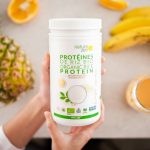Ultimate Guide to Gut-Healthy Foods: Boost Digestion and Immunity
Choosing the Right Strains
Selecting the appropriate strains of probiotics is important for addressing specific health concerns. Common strains like Lactobacillus and Bifidobacterium are well-researched for their digestive benefits. Lactobacillus acidophilus, for example, is widely known for aiding lactose digestion. Different strains target different areas of health, so matching the strain to the need is crucial for efficiency.
Probiotic supplements vary in potency and strain combinations. It’s advisable to choose products with documented strains that match intended health benefits. An understanding of how each strain contributes to overall gut health can enhance the positive impact on nutrient absorption and immunity. Informed choices lead to better health outcomes and support the gastrointestinal tract effectively.
Fine-tuning Gut Health with Herbs and Spices
Herbs and spices can profoundly impact digestive health, offering anti-inflammatory properties and phytochemicals that support gut function. From soothing inflammation to balancing gut flora, these natural ingredients play an essential role in promoting a healthy digestive system.
Common Herbs for Digestion
Some of the most effective herbs for aiding digestion include ginger, peppermint, and chamomile. Ginger is known for its ability to ease nausea and promote smooth digestive processes. It contains compounds like gingerol that have anti-inflammatory and antioxidant effects, benefiting overall gut health.
Peppermint is another herb known for its calming effects on the digestive system. It can help relax the muscles of the gastrointestinal tract, alleviating symptoms like bloating and gas. Chamomile, with its gentle properties, can soothe the stomach lining and act as a mild relaxant, promoting a sense of calm and aiding digestion.
Spices That Support Gut Flora
Certain spices are invaluable in maintaining a balanced gut flora. Turmeric, for instance, contains curcumin, recognized for its strong anti-inflammatory properties. This spice may help reduce inflammation in the gut and support the growth of beneficial bacteria.
Cinnamon is another spice with noteworthy benefits. It has antibacterial properties that can help maintain a healthy microbial balance in the gut. Additionally, it may improve digestion by increasing the secretion of digestive enzymes. Cloves also contain compounds that encourage healthy digestion and help balance gut bacteria.
These herbs and spices, laden with beneficial compounds, are more than just flavor enhancers. They contribute significantly to gut health, making them a worthwhile addition to any diet aimed at improving digestive function and overall wellness.
Beverages for Optimal Gut Function
The choice of beverages significantly impacts gut health, with specific drinks like caffeinated beverages and fermented drinks offering distinct effects. Understanding these beverages can enhance both digestion and overall gut function.
Pros and Cons of Caffeinated Drinks
Caffeinated drinks, particularly coffee, are popular worldwide. They can stimulate the digestive tract, aiding bowel movements and reducing the risk of constipation. The caffeine in these beverages promotes alertness and can enhance energy levels. Despite these benefits, there are some considerations. Excessive consumption may lead to dehydration, irritating the stomach lining and exacerbating conditions like acid reflux.
Additionally, caffeine can disrupt sleep patterns if consumed in large amounts, impacting overall well-being adversely. Moderation is crucial to maximizing benefits and minimizing potential drawbacks.
Health Benefits of Fermented Beverages
Fermented beverages, like kombucha and those derived from fermented dairy, offer substantial benefits for gut health. These drinks contain probiotics, which support the growth of beneficial gut bacteria. This can improve digestion and potentially enhance the immune system.
Kombucha, a fermented tea, provides antioxidants, which may help in reducing inflammation. Fermented dairy, such as kefir and certain yogurts, offers similar benefits along with a rich source of calcium and vital nutrients. These beverages, when incorporated into a balanced diet, can contribute to improved gastrointestinal function. However, individuals should be mindful of sugar content and personal tolerability, as some people may experience digestive discomfort.



